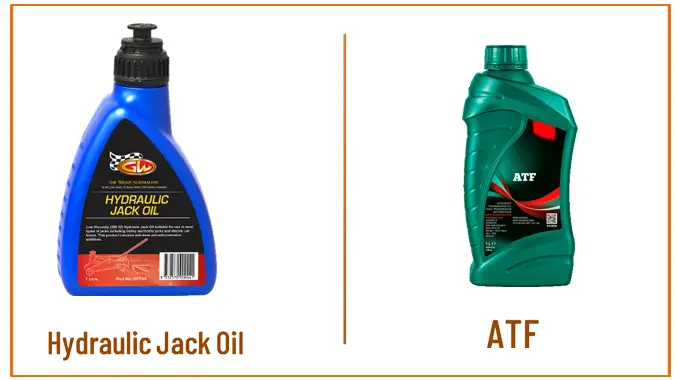Last Updated on March 13, 2023
When it comes to hydraulic jacks, there is a lot of debate about which type of oil is ideal to use. Some people swear by hydraulic jack oil, while others prefer automatic transmission fluid (ATF). So, what’s the difference between these two oils? And more importantly, which one should you use in your jack?
Auto transmission fluid, commonly referred to as ATF is a type of hydraulic fluid that helps lubricate and cool your vehicle’s transmission. Hydraulic jack oil, on the other hand, is a type of oil specifically designed for use in hydraulic jacks. Despite their similarities, both fluids have important differences as well.
Using the wrong type of fluid in your transmission can lead to serious problems, so it is important to be aware of the difference between hydraulic jack oil vs ATF. So continue reading to learn more about these two fluids and which one is best for your needs.
Hydraulic Jack Oil vs ATF: What’s the Difference?
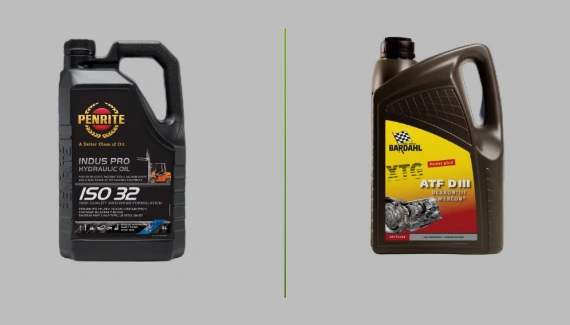
ATF and hydraulic jack oil are both fluids that are used to lubricate and protect moving parts. Hydraulic jack oil is a type of fluid used in hydraulic jacks. It is also known as mineral oil or white mineral oil. ATF, meanwhile, provides synthetic oil used in automatic transmissions.
Though both are oils, there are some key differences between ATF and hydraulic jack oil.
Here are some of the key differences between hydraulic jack oil and ATF:
1. Viscosity
When it comes to hydraulic jack oil and ATF engine oil, one of the main differences lies in their viscosity. Hydraulic jack fluids are highly viscous fluids, meaning they are thick and sticky. This property is what gives them their lubricating qualities. When the viscosity is not maintained, it can cause damage to system components.
ATFs, on the other hand, has a lower viscosity and operate at lower pressures and temperatures. There is a greater temperature range within which hydraulic fluids keep their viscosity. In other words, at higher temperatures, hydraulic fluids are more viscous. So when choosing from hydraulic jack oil and ATF, viscosity is an important consideration.
2. Thermal Stability
Thermal stability is an important distinction in hydraulic jack oil and automotive transmission fluid. Fluids with high thermal stability maintain their properties at high temperatures. When the hydraulic fluid temperature reaches 180°F (82°C), most seal compounds are damaged, and oil degradation is accelerated.
Auto transmission fluid breaks down at temperatures higher than 175 degrees. It is necessary to improve thermal and chemical stability to enhance fluid life. Hydraulic fluids are designed to maintain their properties at temperatures above 180°F (82°C), while transmission fluids must be stable at temperatures above 170° to 175°F.
This difference is due to the fact that hydraulic systems operate at much higher pressures than transmission systems. As a result, hydraulic fluids must be able to withstand greater shear forces and heat. In conclusion, when choosing a hydraulic fluid or ATF, it is important to consider the thermal stability of the fluid.
3. Properties
Hydraulic fluids and ATFs also have different chemical properties. These chemicals give each fluid its unique characteristics. For example, hydraulic fluids contain additives that help prevent foaming, while ATFs contain detergents that help keep the transmission clean.
Also, hydraulic fluids have a higher boiling point than ATFs. That’s because the hydraulic system runs at higher temperatures than transmission systems. Hydraulic fluid is typically used when high operating temperatures are a concern. The oil must be able to withstand high temperatures without breaking down or losing its lubricating properties.
The ATF should also be easy to use in cold temperatures and have a viscosity that ensures a smooth, constant power transfer between brakes and clutches. In opposition, hydraulic jack oil is designed for hydrolytic stability and fire resistance applications.
4. Frictional Force
The frictional force is also different between hydraulic fluids and ATFs. Hydraulic jack oil is designed to minimize friction, while ATF is specifically formulated to create friction. For clutches, ATF should allow some friction, but for other parts, friction should be kept to a minimum. This is to ensure that the transmission operates smoothly and efficiently.
ATF is commonly used in hydraulic jacks because it helps prevent metal-to-metal contact, damaging the jack over time. The thing is, hydraulic jack oil is generally considered to be a better long-term option since it produces less heat and is less likely to break down. The best fluid choice for your hydraulic jack will depend on your specific needs and preferences.
Is ATF Fluid Okay to Use In Hydraulic Jacks?
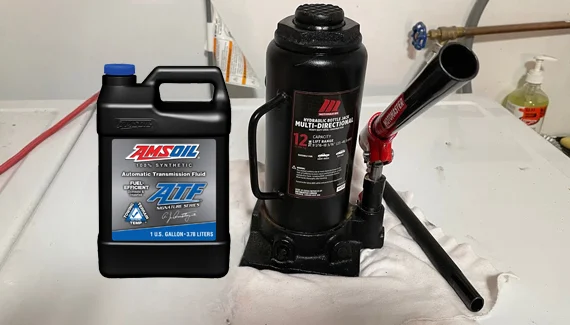
Yes, ATF fluid can be used in hydraulic jacks. In fact, it is often the preferred choice for long-term use because it produces less heat and doesn’t break down as quickly. Other hydraulic systems can also use automatic transmission fluid instead of hydraulic oil. Designed to protect transmission components from deterioration, automatic transmission fluid is the most complex lubricant.
The fluid also helps to keep the transmission cool by dissipating heat. In addition, ATF allows you to clean the system and prevent the build-up of sludge and deposits. For these reasons, ATF motor oil makes an excellent choice for use in hydraulic jacks. Just be sure to check the manufacturer’s recommendations before making the switch.
How Long Does ATF Fluids Last?
Automatic transmission fluid (ATF) is a crucial component of your vehicle’s transmission, and it needs to be maintained to keep your car running smoothly. But how often should you replace it? The answer to that question depends on a few factors.
It is important for you to know that transmission fluid needs to be replaced every 30,000 to 60,000 miles, depending on the vehicle and how it is driven. Second, the life of ATF fluids begins to diminish if their temperature rises too much. It is estimated that ATF will last approximately 100,000 miles if fluid temperatures are kept at 175 degrees F.
Some automakers now say that their transmissions don’t need to be serviced until they reach 100,000 miles. So, if you’re wondering exactly how long ATF motor oil lasts, the answer is that it depends on your car and your driving habits. But as a general rule of thumb, you should plan on replacing your transmission fluid every 30,000 to 60,000 miles.
Is It Okay to Mix Different Hydraulic Fluids?
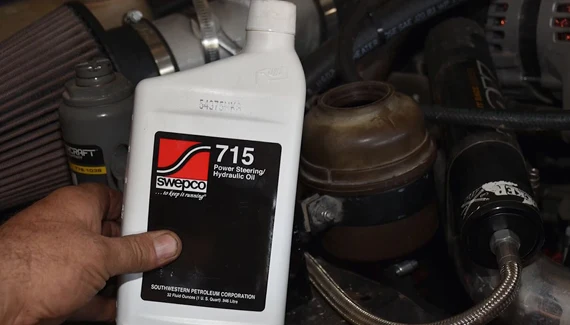
Mixing different hydraulic fluids is not a good idea. Different hydraulic fluids have different properties and can actually cancel each other out if mixed together. For example, one type of hydraulic fluid may be designed to lubricate better, while another may be designed to resist degradation better.
Chemical reactions between different additives may ruin the technical properties of each individual fluid, resulting in poor overall performance. In addition, mixing different hydraulic fluids can lead to compatibility issues that could damage the hydraulic system. For these reasons, it is always best to use the same type of hydraulic fluid throughout a system.
Are ATF Fluids Able to Be Mixed?
When it comes to transmission fluids, there is a lot of confusion about what kind to use and whether or not different types can be mixed. The short answer is that, in most cases, you should only use the type of fluid that is specified by your vehicle’s manufacturer. This rule does not apply to all situations.
For instance, conventional automatic transmission fluid (ATF) and synthetic ATF are fully compatible. So if you find yourself in a situation where you need to top up your ATF but only have synthetic ATF on hand, don’t worry – you can safely add it to your vehicle. Just be sure to check your owner’s manual first to see if there are manufacturer-specific instructions.
Conversely, using automatic transmission fluid rather than variable transmission fluid is one of the most common instances of using the wrong transmission fluid. The addition of ATF to a CVT eventually results in transmission death. So if you’re unsure about what type of fluid to use, stick to the recommended type and avoid mixing and matching.
Is Hydraulic Jack Oil Suitable For Use As Gear Oil?
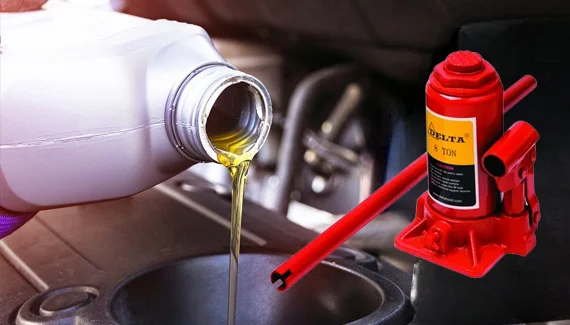
Many people believe that hydraulic jack oil can be used as a suitable replacement for gear oil. As it turns out, this is not the case. Hydraulic oils lack some of the key properties that are necessary for protecting gear teeth. Hydraulic oils, for example, have a low viscosity and a high pour point, which means they do not cling to gears and provide inadequate lubrication.
In contrast, gear oils are intended to maintain viscosity at high temperatures and protect against erosion. For these reasons, it is important to use the correct type of oil for each application. Using hydraulic oil instead of gear oil can result in increased abrasion and damage to your engine.
What’s the Weight of Hydraulic Jack Oil And ATF Fluid?
Hydraulic jack oil typically has a viscosity of 10W or 20W. Anyone who has ever had to change a tire knows that a hydraulic jack is an essential tool. But what weight is the hydraulic jack oil that helps it do its job? Most of the hydraulic jack oil on the market falls into the 10 to 20-weight range. This means that it is relatively thin and flows easily.
The grease is thick enough to lubricate and protect the moving parts of the jack. Aside from that, hydraulic jack oil usually has a high viscosity index, which means that it maintains its properties over a wide range of temperatures. As a result, it can be used in both hot and cold climates without fear of damage or loss of performance.
Conversely, ATF motor oil has a lower viscosity, typically in the 5 to 20-weight range. This means that it is even thinner than hydraulic floor jack oil and flows more easily. ATF fluid is designed for use in transmissions, where it helps to lubricate moving parts and keep them cool.
So now you know everything about ATF fluid and hydraulic jack oil. Whether you need it for your car or home, choose the right weight and type of oil for your needs. And always remember to consult your owner’s manual for specific instructions from your manufacturer.
